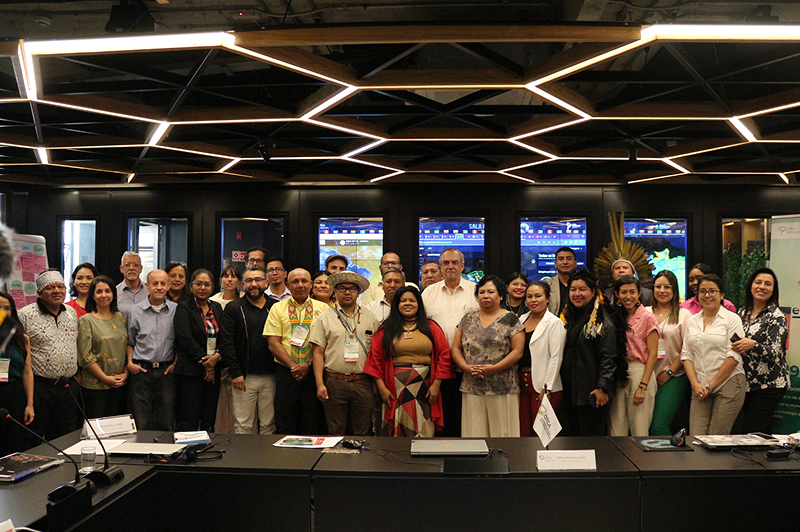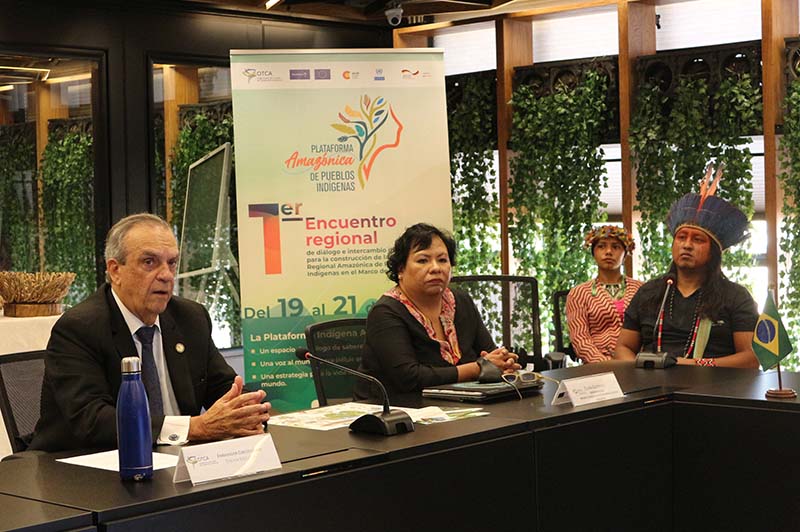Euroclima is a program co-funded by the European Union and the German federal government through the Federal Ministry for Economic Cooperation and Development (BMZ).
The Program's mission is to reduce the impact of climate change and its effects in 33 countries in Latin America and the Caribbean by promoting mitigation, adaptation, resilience, climate investment and biodiversity. To this end, it is implemented according to the "Spirit of Team Europe" under the synergistic work of seven agencies: Spanish Agency for International Development Cooperation (AECID), AFD Group: Agence Française de Développement (AFD)/ Expertise France (EF), Economic Commission for Latin America and the Caribbean (ECLAC), Fundación Internacional y para Iberoamérica de Administración y Políticas Públicas (FIIAPP), Deutsche Gesellschaft für Internationale Zusammenarbeit (GIZ) GmbH, the UN Environment Programme (UNEP) and the United Nations Development Programme (UNDP).
In this context, through the agencies AECID, ECLAC and GIZ, the Euroclima program supports the implementation of the project for the creation of an Amazon regional platform of Indigenous Peoples within the Amazon Cooperation Treaty Organization (ACTO) framework, fostering the fulfillment of the mandates of the United Nations Framework Convention on Climate Change (UNFCC) and the Paris Agreement, under the aim to recognize the role of Amazon indigenous peoples’ knowledge and practices in climate change adaptation and mitigation. The project aims to facilitate knowledge exchange for mitigation and adaptation, establish an integrated Amazonian platform with the UNFCCC, and formulate a regional strategy for Indigenous Peoples' climate action. By doing so, these knowledge systems can be adequately considered in the design of public policies, NDCs (Nationally Determined Contributions), and activities related to climate change mitigation and adaptation.
The Amazon Cooperation Treaty Organization (ACTO), is an Intergovernmental Organization established under the 1978 Amazonian Cooperation Treaty (ACT). It consists of eight Member Countries: Bolivia, Brazil, Colombia, Ecuador, Guyana, Peru, Suriname, and Venezuela. ACTO's core mission revolves around fostering harmonious development within the Amazonian territories, wherein collaborative efforts among the Amazonian countries yield fair and mutually advantageous outcomes, ultimately contributing to the sustainable development of the Amazon Region. One of the critical areas of focus for ACTO is the advancement and implementation of the United Nations Framework Convention on Climate Change decisions within the Amazon Region.Under this objective, the first regional event was held in Brasilia, from July 19 to 22.
The first regional event “Dialogue and Exchange of Experiences for the construction of the Regional Platform of Indigenous Peoples of the Amazon” convened Indigenous leaders from the Amazon, government representatives of the Member Countries comprising the Amazon Cooperation Treaty Organization (ACTO), and experts from diverse fields. The primary aim of this regional event was to formulate recommendations that would bolster the region's articulation efforts for the constitution of the Platform and contribute to the creation of a Regional Strategy to improve Amazonian Indigenous Peoples´ participation in climate actions.
During the regional event the Minister of Indigenous Peoples of Brasil, Sônia Guajajara aptly stated:
“An indigenous platform in the frame of ACTO is crucial. It is not simple to promote a different model of integration by the North. Climate change challenges don't give us time to make mistakes. Therefore, governments and indigenous peoples need to dialogue like never before and governments need to be open to traditional knowledge, they need to understand that indigenous ways of life are those that protect biodiversity”[1].
Her words emphasize the significance of dialogue and collaboration to safeguard indigenous knowledge, highlighting the valuable role of the indigenous platform in promoting inclusion and representation of indigenous knowledge in shaping climate actions. Certainly, this message truly encompasses the spirit of the event’s objective.
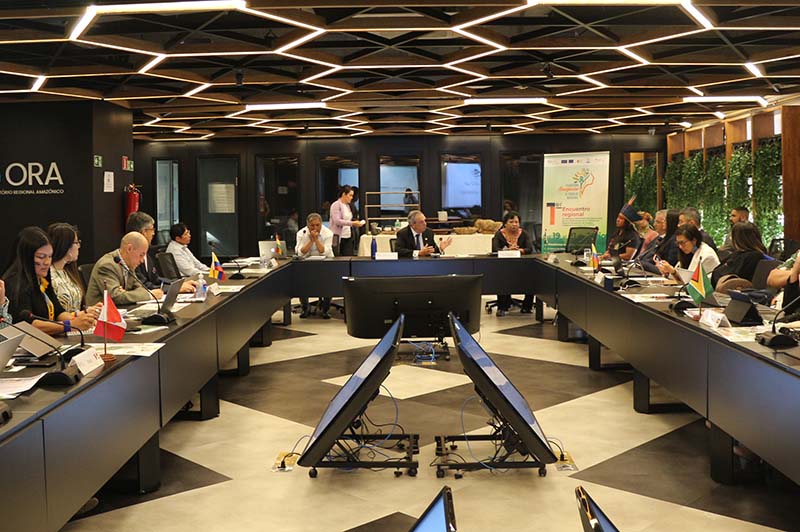 |
|
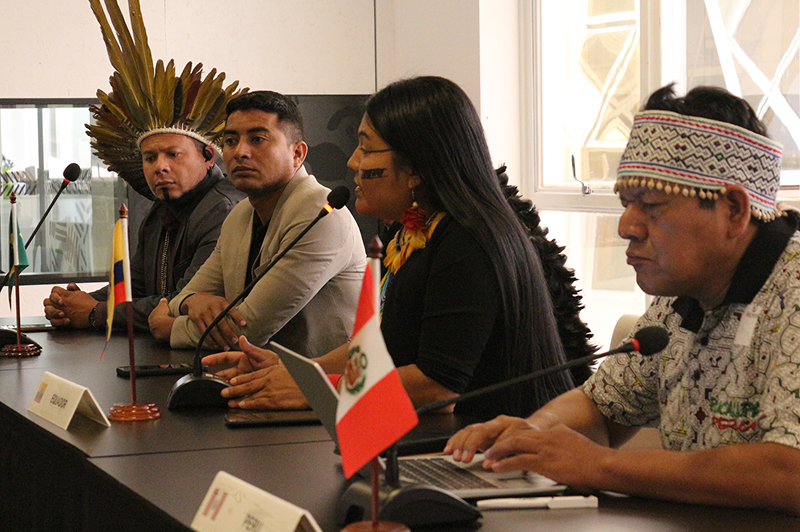 |
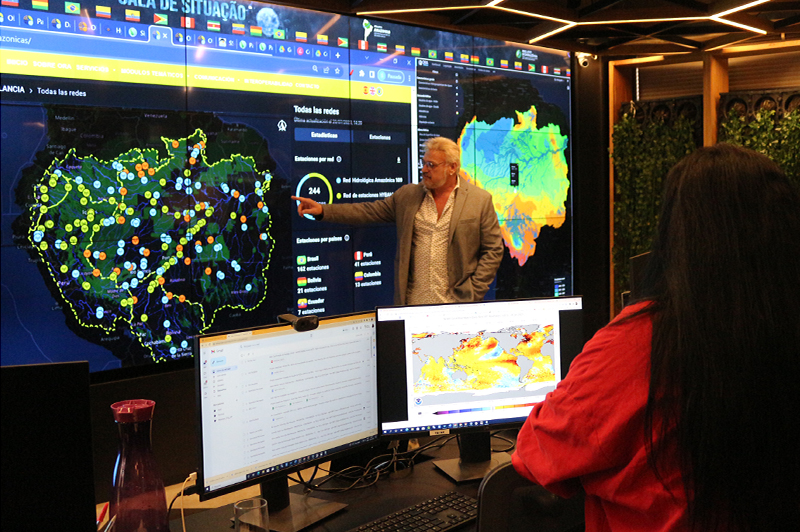 |
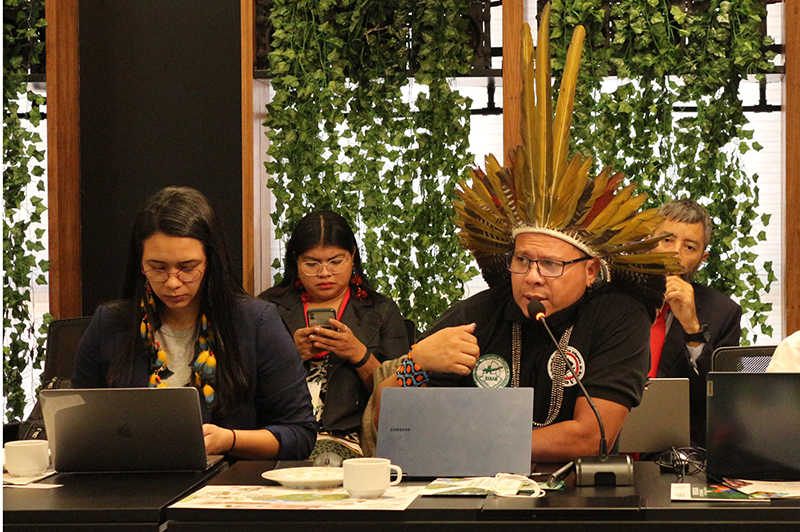 |
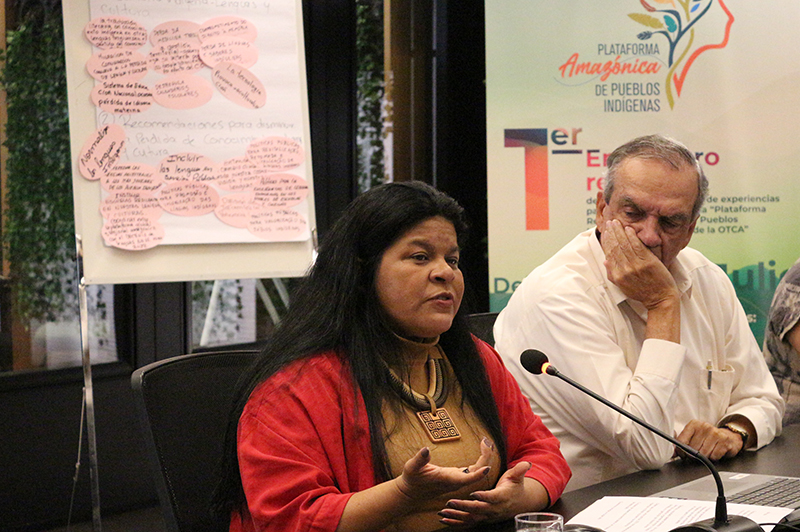 |
The event's objective was to bring together key stakeholders from ACTO Member Countries and the Indigenous Peoples of the Amazonian regions. The three-day event incorporated presentations, group work, and dialogues aimed at sharing experiences across various sectors, with a particular emphasis on the significant contribution of indigenous knowledge. The guiding discussion was oriented towards addressing the challenges for indigenous food security and health, Amazonian forests and biodiversity, indigenous languages and cultures, and governance and regional articulation, in the context of climate change.
The overarching goal of the event was to generate invaluable insights from participants representing the views from indigenous peoples and government of the 8 member countries that contribute to a comprehensive understanding of Indigenous Peoples' knowledge and best practices applicable to climate change and their integration into public climate policies. Through these discussions, reflections, and recommendations on each topic, strategic guidelines were formulated to guide priority actions for the Amazon region. Additionally, these inputs will contribute to the establishment of the Amazon Regional Platform of Indigenous Peoples, serving as a permanent forum for regional dialogue to shape mitigation and adaptation efforts within the ACTO States. Furthermore, considering that the event focused on enhancing the capacity of Parties to incorporate Indigenous Peoples' knowledge into public policies and develop a well-grounded regional approach, Official government delegations actively engaged in sharing their actions and work initiatives to identify common themes and areas of convergence. This collaborative approach aimed to foster unity and effectiveness in addressing the challenges faced in the Amazon region.
[1] original quote in Portuguese: “Uma plataforma indígena no âmbito da OTCA é crucial. Não é simples promover um modelo diferente de integração pelo Norte. As urgências climáticas não nos dão tempo de errar. Por isso, governos e povos indígenas precisam dialogar como nunca antes e os governos precisam estar abertos aos conhecimentos tradicionais, precisam entender que os modos de vida indígena são aqueles que protegem a biodiversidade”. Source: MPI defends dialogue between governments and peoples of the Amazon to protect the forest — Ministry of Indigenous Peoples (www.gov.br)
